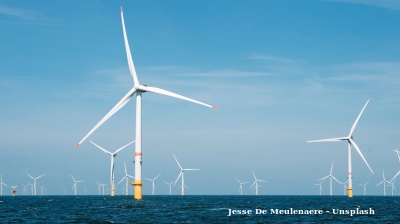A new study, in "Nature Ecology & Evolution", reveals that the frequency and intensity of severe wildfires worldwide have doubled over the last two decades due to climate change.
The analysis highlights significant fires like those in Australia in 2019 and 2020, unprecedented in their size and intensity.
Since 2017, the six most extreme fire years have occurred, indicating a clear trend exacerbated by climate change.
Lead researcher Calum Cunningham, from the University of Tasmania, noted that climate change amplifies fire weather globally, increasing both the frequency and extremity of wildfires in many regions. While earlier studies showed a decline in burned areas by wildfires since the turn of the century globally, this new research underscores a 2.2-fold rise in extreme wildfire events since 2003.
The ecological and societal impacts of these extreme wildfires are severe, causing deaths, biomass loss and releasing substantial amounts of carbon. Burn severity, a measure of these impacts, has risen in more regions than it has decreased, according to the study.
Cunningham said that the research initially aimed to counter scepticism about a growing fire crisis. Despite reduced overall burning, the study reveals a paradox where wildfires are becoming more intense and damaging.
Analysing data from NASA satellites spanning 21 years, the researchers observed alarming increases in extreme fires. This trend is particularly concerning as hotter, more energetic fires become more and more difficult to control and suppress.
The study also highlights a troubling trend where nighttime temperatures, crucial for firefighting efforts, no longer provide the usual respite as fire intensity persists through the night. This shift poses challenges for firefighters, complicating containment strategies.
Jennifer Balch from the University of Colorado emphasised the growing burden on firefighters, exacerbated by a warming climate and increasing wildfire risks faced by millions of homes in the US.
The researchers plan to delve deeper into the scientific underpinnings of these trends. Cunningham stressed that climate change has created hotter and drier fire weather conditions, fostering environments where wildfires can ignite and spread, even in regions historically less prone to such events.
The study identifies regions such as North America, Australia, Oceania and the Mediterranean as experiencing disproportionate increases in extreme wildfires. Forests, especially conifer and boreal types in North America and Russia, have seen significant spikes in wildfire intensity, reflecting broader global trends driven by climate change.
Cunningham said that climate change is not a distant future concern but a present reality reshaping our environment. The escalation in extreme wildfires is a visible manifestation of this climate transformation happening before our eyes, he said.
bneGREEN

North Macedonia's Skopje tackles mounting waste and rodent crisis
Locals say the problems in Skopje's Centar municipality worsened during the local election period when political campaigning took precedence over maintenance.

Malaysia–Vietnam offshore wind project to deliver 2,000 MW by 2034, strengthening regional green energy links
Malaysia’s upcoming offshore wind project connecting Vietnam to Peninsular Malaysia is expected to generate up to 2,000 megawatts (MW) of clean energy by 2034, marking a major step in the nation’s renewable energy expansion

EBRD invests €16.8mn in Croatia’s first large-scale battery storage and virtual power plant
Development bank to take its first equity stake in a standalone merchant storage project.

Kyrgyzstan says neighbours “upset” by country’s lack of water
“This year we were supposed to overcome shortages, but instead, they have intensified,” deputy head of cabinet tells Uzbekistan and Kazakhstan.

_John_McColgan.jpg)
.jpg)
